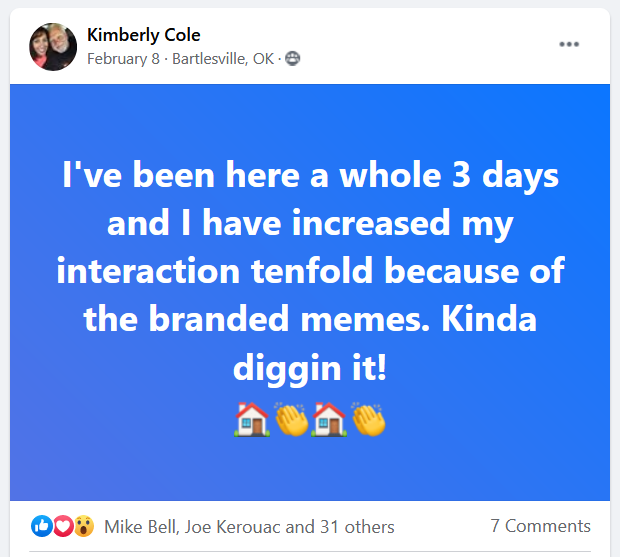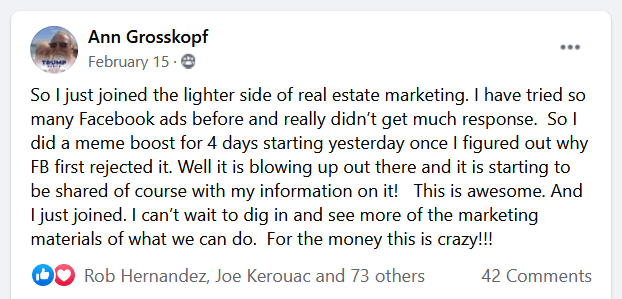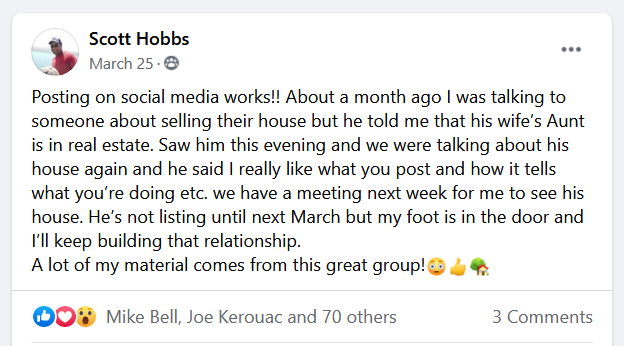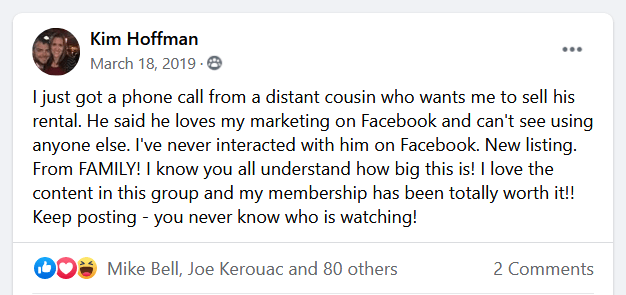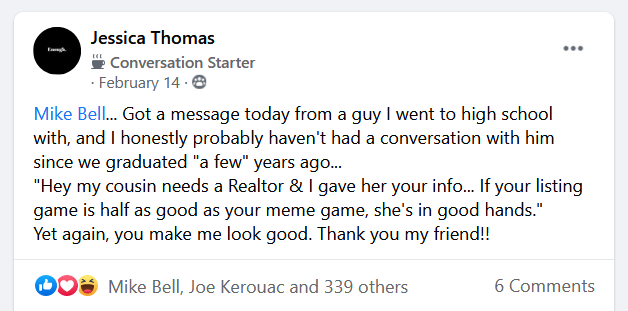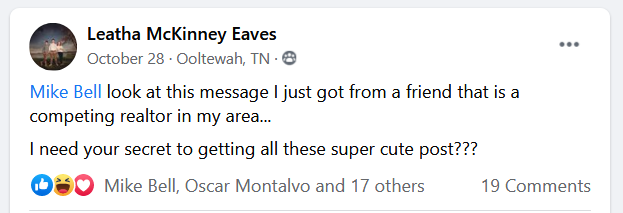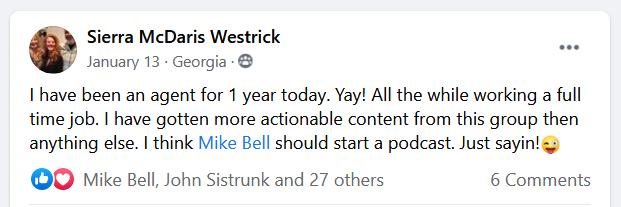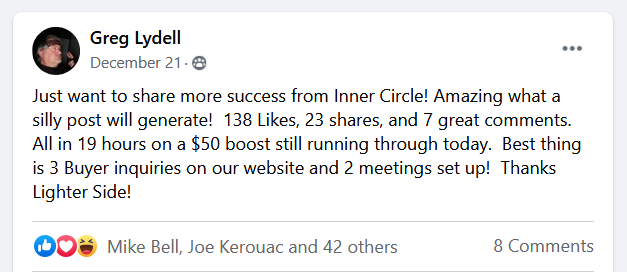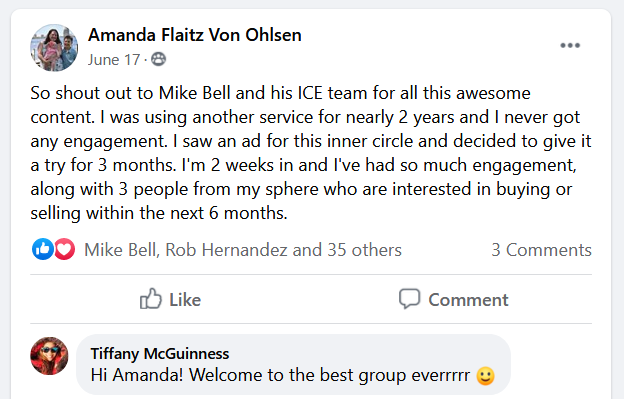
Here’s Why You Should Re-Share Real Estate Content You’ve Shared Before… Again and Again
The Internet has really leveled the playing field for real estate agents. Years ago you needed a hefty marketing budget to be able to get


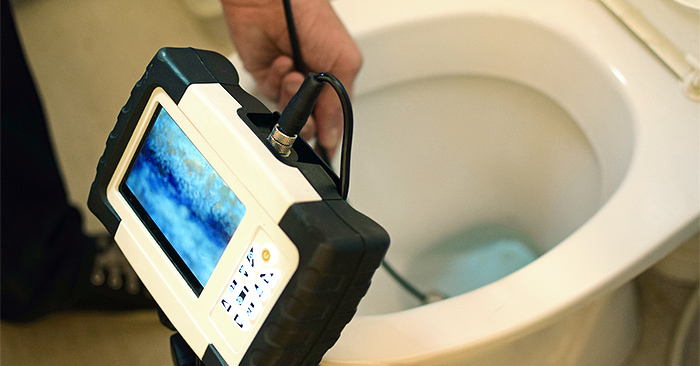
Homeownership has a long list of benefits that renting simply can’t match. For one, it’s an investment in your future. Every mortgage payment you make helps build equity—something no rent check will ever do.
There’s also the pride of ownership, the freedom to customize your space however you like, potential tax benefits, and a sense of long-term stability that renting often lacks. Whether it’s planting a garden, painting the walls whatever color you want, or not worrying about your lease being renewed every year, owning your home offers freedom, security, and a solid foundation for the future.
But owning a home comes with responsibilities, too. Unlike renting, there’s no landlord to call when something breaks. The maintenance, upkeep, and surprise repairs fall squarely on your shoulders. And while homeowners insurance is essential, it doesn’t always cover everything—especially when it comes to some of the more common, yet expensive, issues lurking under the surface.
Like one of the most dreaded problems a homeowner can face…sewer line trouble.
Sewer lines are one of those systems in your home that you don’t think about until something goes horribly, horribly wrong. They’re buried underground, often decades old, and expensive to repair or replace. A recent study from Guardian Service confirms what many homeowners already fear—sewer issues can sneak up and drain your wallet fast.
Here are a few findings from the report:
What makes sewer repairs especially painful is their unpredictability. A simple snaking—clearing a clog with an auger—can cost a few hundred dollars for a relatively quick visit. But if it’s a bigger issue, such as tree root intrusion or a broken line that requires excavation, the cost can skyrocket into the thousands.
So how can homeowners avoid a sewer-related crisis—or at least minimize the risk?
Most standard home inspections don’t include sewer lines. A separate scope inspection (where a camera is fed into the line) can reveal years of buildup, cracks, or other damage. If issues are found, you might be able to negotiate repairs or a cleaning before closing. Think of it as protection against inheriting someone else’s bad habits.
If you’ve been in your home for several years and have never scoped your sewer line, now’s the time. Preventive maintenance—especially in older homes—can save you from major issues later. A professional can assess the condition of your line and recommend cleaning if needed.
According to Guardian’s report, some of the worst offenders include:
It only takes one person flushing the wrong item to cause a problem. Make sure everyone in the house understands what can and can’t go down the drain and remind them often. It might come across as a bit much to make such a big deal out of it, but it beats getting a big bill from a plumber.
Life happens. Plumbing issues don’t wait for payday. Having even a small emergency fund set aside can help you act quickly if something goes wrong, without having to delay needed repairs—or worse, let the problem get worse.
Don’t wait until you’re ankle-deep in murky water to start searching for help. Ask neighbors or your real estate agent for recommendations and find a reputable plumber in your area. Ideally, someone who handles or specializes in sewer systems.
Some insurance companies offer riders for utility line coverage, which may include sewer lines. You can also look into separate home warranties or maintenance plans that include regular inspections and service. Just make sure to read the fine print—some warranties have specific exclusions when it comes to sewer lines.
While it’s no fun to even think about how much an issue with your sewer line could cost you, thinking ahead may be exactly what will save you from a huge plumbing bill! These kinds of problems are common, and many homeowners go through it at some point. But the tips above can go a long way in reducing your risk—and softening the financial blow if something does go wrong.
The Takeaway:
While sewer lines aren’t the most glamorous part of homeownership, they’re one of the most expensive things that can go wrong. Too often, homeowners don’t think about their sewer line until they’re facing an emergency with a steep price tag attached.
Fortunately, a little foresight goes a long way. By investing in inspections, avoiding bad habits, and setting aside emergency funds, you can stay ahead of the curve—and the clogs. It’s also a great reminder to revisit your homeowners insurance coverage, consider additional protection if needed, and make sure you have a reliable plumber in your corner.

(Shh, our secret)
Show your sphere your an expert. We have over 2100 articles covering every real estate topic your audience will love.
Position yourself as a real estate authority!
Real estate + topical events — the perfect match!
Become the bearer of good vibes!
Because hey, everyone loves to laugh!



Get our weekly email that makes communicating with your sphere on social actually enjoyable. Stay informed and entertained, for free.

The Internet has really leveled the playing field for real estate agents. Years ago you needed a hefty marketing budget to be able to get

If I’m not writing, I’m selling real estate. Sometimes, when I reveal this to my artsy writer friends, I get a look of surprise or

Blogging is something many real estate agents struggle with. To begin with, you might wrestle with whether or not it’s even worth doing. Is blogging

At some point in their career, almost every agent either considers joining a team, or is asked to join one. It’s not the right move

It hits you like a ton of bricks the first time you hear it could take months (or even years) for a real estate lead
Depending on your situation, it may not take the full 30 minutes.

This reset password link has expired. Check the latest email sent to you.
